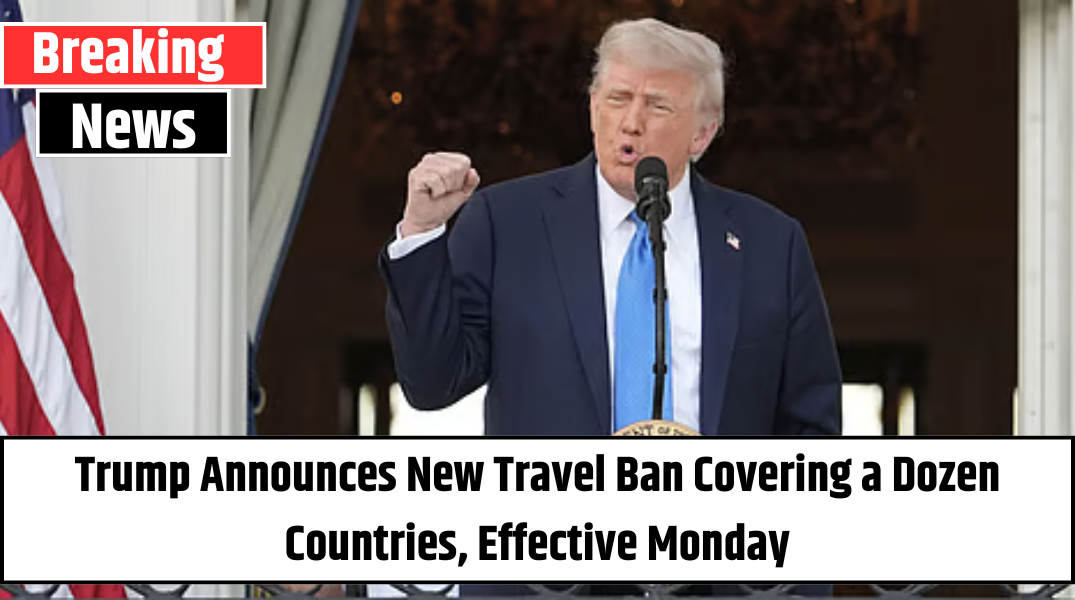WASHINGTON — Former President Donald Trump has brought back a version of his contentious travel ban from his first term, issuing a proclamation on Wednesday night that bars entry into the U.S. for citizens from a dozen countries, citing national security concerns.
The ban, set to take effect at 12:01 a.m. on Monday, targets individuals from the following countries: Afghanistan, Burma (Myanmar), Chad, the Republic of the Congo, Equatorial Guinea, Eritrea, Haiti, Iran, Libya, Somalia, Sudan, and Yemen.
Alongside this ban, Trump is also imposing tighter entry restrictions on travelers from Burundi, Cuba, Laos, Sierra Leone, Togo, Turkmenistan, and Venezuela.
Also Read – Prostate Cancer Cases Surge in This U.S. State—Doctors Reveal Possible Cause
“In order to safeguard the United States and protect its people, decisive action is required,” Trump said in the signed proclamation.
This renewed policy stems from a directive Trump issued on Jan. 20, instructing the Departments of Homeland Security and State, along with the Director of National Intelligence, to evaluate global threats and determine which nations pose potential security risks based on their stance toward the United States.
During his presidency in 2017, Trump signed an executive order early in his term that restricted travel from several Muslim-majority nations, triggering widespread confusion and protests. The original ban included Iraq, Syria, Iran, Sudan, Libya, Somalia, and Yemen. Many travelers from these countries were stopped from boarding planes or detained upon arrival in the U.S., including students, academics, and tourists.
This order — often labeled the “Muslim ban” — was challenged repeatedly in court and underwent several revisions before a narrowed version was upheld by the Supreme Court in 2018. That version included restrictions on travelers from Iran, Libya, Somalia, Syria, Yemen, North Korea, and certain Venezuelan officials.
Also Read – Prostate Cancer Risk Jumps 45% in Men with This One Risky Habit
Trump and his allies have consistently argued that the policy prioritizes U.S. safety and is not based on religious discrimination. However, critics point to Trump’s 2016 campaign call for a “total and complete shutdown of Muslims entering the United States” as evidence of underlying bias.
The latest iteration broadens the scope of countries affected and reopens debate over immigration and national security as Trump continues to position himself as a tough-on-border-control candidate .

